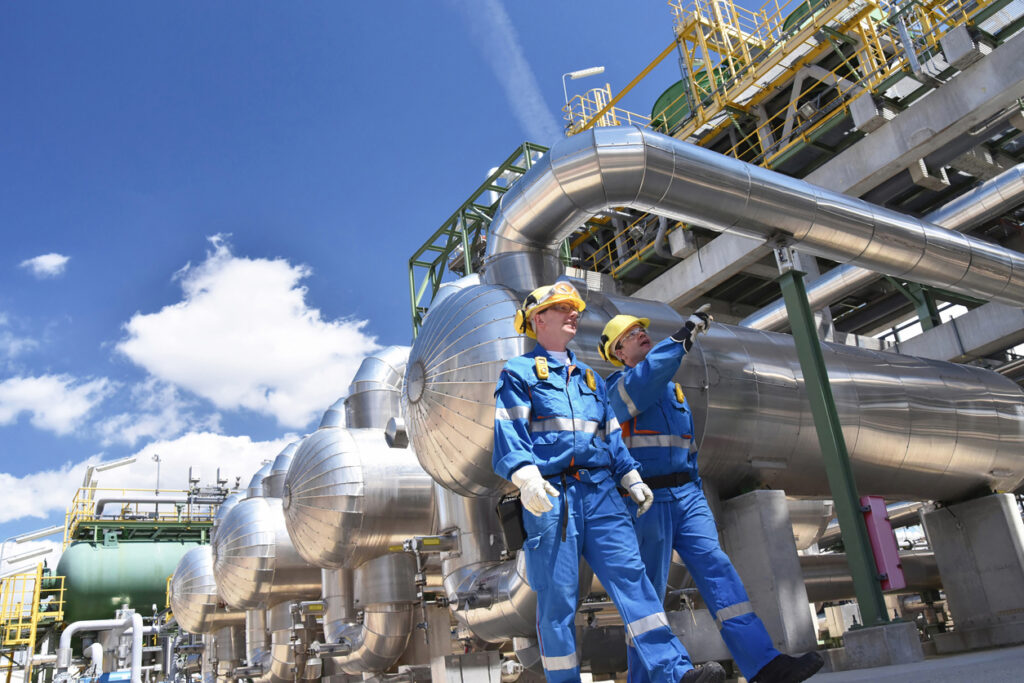Intermediate chemicals are essential in industrial processes and manufacturing. Their quality and availability directly impact the quality of your end products and the efficiency of your operations. Hence, selecting the right supplier is not just a decision; it’s a strategic move.
This guide will unpack the essential considerations when selecting an intermediate chemical supplier.
The Role of Intermediate Chemicals

Intermediate chemicals are compounds formed as “stepping stones” in the journey from raw material to finished product.
Their role isn’t just limited to product formulation; they also enhance the overall efficacy of industrial operations.
Core Building Blocks
These chemicals often serve as foundational components in a wide variety of products. Whether it’s pharmaceuticals, cosmetics, agrochemicals, or specialty chemicals, intermediates are the backbone that supports product formulation.
Process Efficiency
Incorporating the right intermediates can optimize reaction pathways, reducing the number of steps or even enabling more energy-efficient reactions. This translates to quicker production cycles and reduced costs.
Product Performance
Intermediates can influence the performance attributes of the final product. For instance, in pharmaceuticals, an intermediate might play a role in enhancing the drug’s efficacy or stability.
Regulatory Adherence
Many industries have strict guidelines on product composition and quality.
Using specific, high-quality intermediate chemicals can assist in meeting these requirements, ensuring that the end products are safe and compliant.
Innovation Enabler
As new materials and compounds are discovered, the role of intermediates evolves. They allow industries to innovate, release new products or enhance existing ones, by acting as the bridge between foundational chemistry and innovative application.
Economic Impact
The production, sale, and purchase of intermediate chemicals form a significant portion of the global chemical industry’s economy. Their manufacture and trade create jobs, drive research, and support many downstream industries.

Understanding Reactive Intermediates in the Chemical Landscape
While many intermediate chemicals serve as steady building blocks in the production process, reactive intermediates are a class of their own.
They are transient species that exist momentarily during a chemical reaction, playing a pivotal role in the transition from reactants to products.
- Significance: Reactive intermediates, despite their fleeting existence, can dictate the course of a reaction. Understanding their behavior is crucial in industries like pharmaceuticals and agrochemicals, where reaction pathways must be meticulously controlled for desired outcomes.
- Supplier Expertise: Choosing a supplier with proficiency in reactive intermediates ensures a deeper understanding of complex chemical reactions. This expertise can be pivotal in troubleshooting, optimizing yields, and improving product quality.
- Safety Considerations: Reactive intermediates can pose safety risks due to their transient and often unstable nature. A supplier adept in handling these compounds will prioritize safe storage, transportation, and use, mitigating potential hazards.
Incorporating reactive intermediates into your production process can be a game-changer, but it necessitates a supplier well-versed in their nuanced behavior and applications.
Industries That Rely on Intermediate Chemical Production & Benefit From a Reliable Catalyst Manufacturing Partner

Intermediate chemicals are essential components in various industries and processes. A reliable catalyst manufacturing partner plays a crucial role in facilitating the production of these chemicals.
Here are some primary industries and processes that heavily rely on intermediate chemicals and, by extension, need a dependable catalyst manufacturer.
Pharmaceuticals
The creation of drugs often involves multiple stages, and intermediate chemicals are vital at each step. Catalysts speed up these reactions, ensuring drugs are produced efficiently.
Agrochemicals
Production of fertilizers, insecticides, herbicides, and other agricultural chemicals involves complex processes where both agro intermediate chemicals and catalysts are indispensable.
Petrochemicals
Oil and gas refining processes use intermediate chemicals to produce a wide range of products, from fuels to lubricants. Catalysts help in cracking and other refining operations.
Plastics and Polymers
The synthesis of various plastics and polymers requires specific intermediate chemicals. Catalysts ensure that these processes proceed at a feasible rate and temperature.
Cosmetics and Personal Care
From the formulation of fragrances to the synthesis of specific compounds used in skincare, intermediate chemicals are crucial. Catalysts often play a role in synthesizing organic compounds in these products.
Textiles
Intermediate chemicals are required for dye synthesis, finishing agents, and other treatments. Catalysts can optimize these reactions.
Electronics
Semiconductors, insulators, and other components often require specialized chemicals in their manufacturing processes. Catalysts can facilitate these chemical reactions.
Food and Beverages
While direct addition is limited, intermediate chemicals play a role in food additives, preservatives, and flavoring agents’ production. Catalysts aid in synthesizing some of these compounds.
Specialty Chemicals
These are produced in smaller quantities than commodities and have specific applications. Both intermediate chemicals and catalysts are integral to their production.
Environmental Technologies
Catalysts play a role in reducing emissions in various industries. Intermediate chemicals can also be used in water treatment processes and waste management.
Bio-renewables and Green Chemistry
As industries move towards sustainable processes, intermediate chemicals derived from bio-based sources are on the rise. Catalysts aid in these green transformations.
Fine Chemicals
These are chemicals produced in limited volumes and high purity levels. They require precise synthesis routes, often necessitating specific intermediate chemicals and catalysts.
Factors to Consider When an Intermediate Chemical Company

Choosing the right supplier is essential for efficient operations, cost savings, and product quality.
Here are key factors to consider in making an informed decision.
Quality Assurance
Quality isn’t merely an indicator; it’s the very essence of a product. Ensure that your supplier emphasizes product purity and consistency. Look for certifications, industry standards, and testing methods they employ.
Reliability and Track Record
A supplier’s history often paints a clear picture of their competence. Investigate their on-time delivery metrics, adherence to product specifications, and, if possible, gather client testimonials or case studies.
Cost Effectiveness
Balancing cost with quality is crucial. Beyond mere price points, examine the potential for volume discounts, favorable contractual terms, and other financial incentives that could benefit your bottom line.
Technical Support and Customer Service
Technical glitches are inevitable. What matters is how your supplier responds to them. Gauge their technical prowess, their problem-solving capabilities, and the efficiency of their after-sales support.
Supply Chain Robustness
Dig deep into the origins of your supplier’s products. Understand their sourcing methodologies, ensuring they are both reliable and sustainable. Also, probe into their contingency measures for disruptions.
Customization Capabilities
In a dynamic market, flexibility is paramount. Your supplier should be capable of customizing products to meet specific requirements, adapting to order modifications, and even adjusting batch sizes.
Environmental and Ethical Standards
In an era where sustainability is paramount, it’s essential to align with suppliers who prioritize green processes. Beyond this, ensure that the company practices ethical sourcing, manufacturing, and community engagement.
Geographical Presence and Logistics
A supplier’s proximity can influence the efficiency of your operations. Beyond mere location, assess their warehousing capabilities, distribution network, and overall logistical prowess.
Research and Development (R&D) Capabilities
Innovation drives progress. A supplier that invests in R&D not only provides cutting-edge products but also opens avenues for collaborative projects, giving you a competitive edge.
Red Flags to Watch Out For
While vetting potential suppliers, be on the lookout for inconsistencies in product quality, a lack of transparency in sourcing methods, or any reservations about their ethical standards. Recognizing these early can save you from costly pitfalls down the road.
Recent Posts
Cutting Costs and Emissions: A Dual Approach for Spark Ignition Engine Manufacturers
Balancing emission reduction with cost management is crucial in spark ignition engine manufacturing. As global environmental regulations become increasingly stringent, manufacturers are compelled to adopt innovative solutions that meet air…
Read MoreCatalyst Testing Tips: Determining Activity in VOC Catalysts
VOC catalysts are pivotal in reducing harmful emissions released during industrial processes, directly influencing air quality and compliance with stringent environmental regulations. However, the effectiveness of these catalysts hinges not…
Read MoreUsing Industrial VOC Oxidation Catalysts for Air Pollution Control
In today’s industrial landscape, managing environmental impact is not just a regulatory compliance issue but a critical element of sustainable operational practices. Among the various pollutants, Volatile Organic Compounds (VOCs)…
Read More


